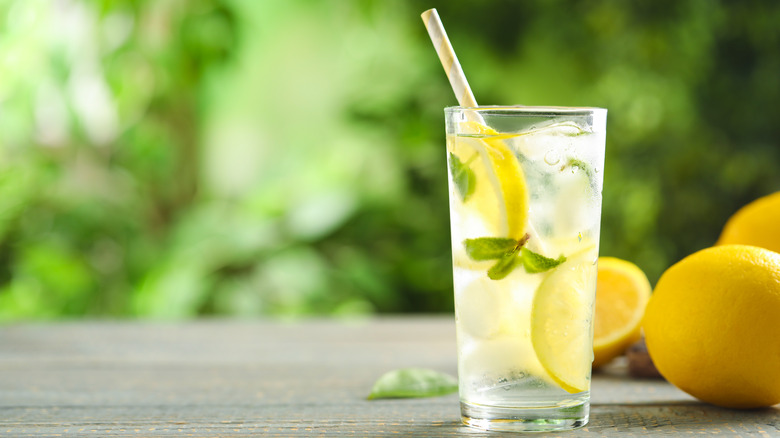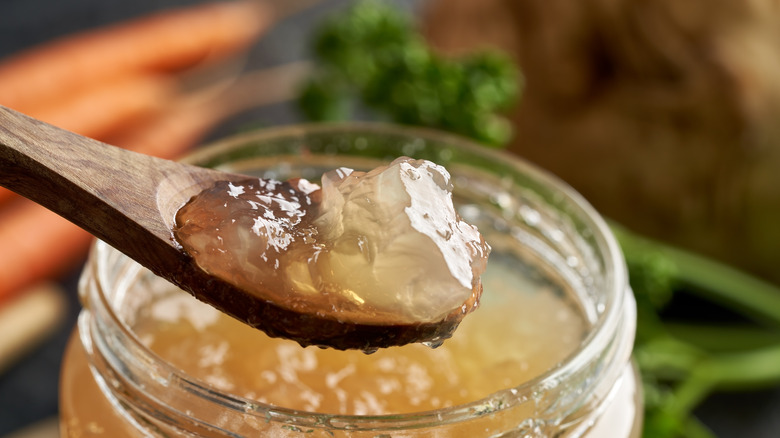The Bizarre Lemonade Recipe From The First-Known Cocktail Book
Lemonade is a pretty tame drink. Throughout history, it's been centered around a standard recipe consisting of varying ratios of water, lemon juice, and sugar, with occasional additions of alcohol or herbs. Though there are some "out there" recipes calling for the addition of coffee and pickles, there is one, above all, that takes the cake as the weirdest lemonade recipe ever devised. Found in what is considered to be the very first cocktail recipe book, this particular version has a list of utterly bizarre ingredients that need to be read in order to be believed.
The book, called "Oxford Night Caps", was first published in 1827. Assembled within its pages is a compendium of Victorian Era drinks recipes that include familiar classics like Wassail and Gin Punch, but also more obscure drinks like Rumfustian, Lambs Wool, and Sherry Cobbler. The recipe for lemonade comes about three-quarters of the way through the book as a variation on Egg Punch. As the cocktails name suggests, one of the main ingredients for Egg Punch is fresh hen eggs. This is not the strangest part of the recipe, however. There is another ingredient, one more at home in aspic than in lemonade, that makes this recipe a true relic of its time — calves-foot jelly.
Calves-foot and egg lemonade?
The "Oxford Night Caps" master recipe for Egg Punch calls for a litany of ingredients. Four lemons, pot oranges, four glasses of liquified calves-feet jelly, a bottle of capillaire (orange flavored syrup), sherry, half a pint of brandy, orange shrub, pulverized sugar, 10 raw eggs, and water all get mixed into a froth. Now, you would think that brandy, sherry, and orange syrup sound like they would make great additives to any lemonade. But these are the ingredients that actually get taken out in the next lemonade variation of this punch recipe.
To make this Victorian lemonade, you omit all the booze and orange-flavored ingredients. In their place is added the juice of four more lemons and additional sugar. The raw eggs and liquid meat jelly stay in. Whether or not this lemonade recipe is anything close to resembling the thirst-quenching beverage we've come to know and love is anyone's guess. Based solely on the addition of the eggs and meat jelly, it'd be safe to assume that this lemonade would be a thicker concoction with something of a savory undertone to it. Hardly a thirst quencher.
But, the recipe was clearly popular enough in Victorian England to remain in the book for multiple printings. And while it may not be our idea of a good glass of lemonade, there's no reason to think that it's bad. There are far weirder flavor combinations that turn out to be good. This could be one of them.

